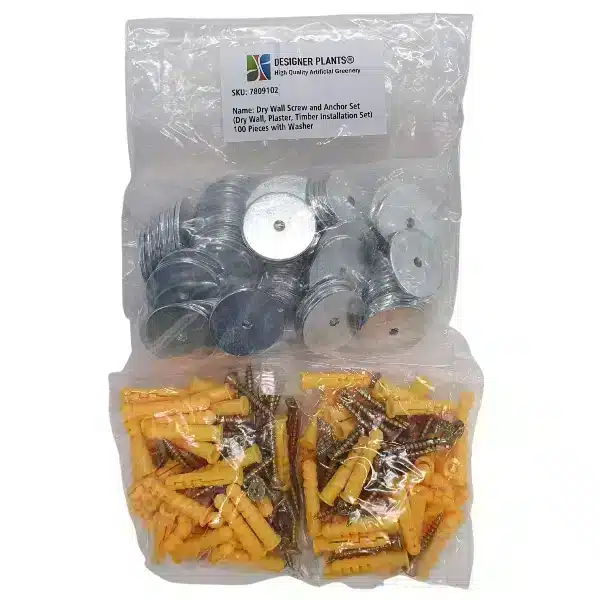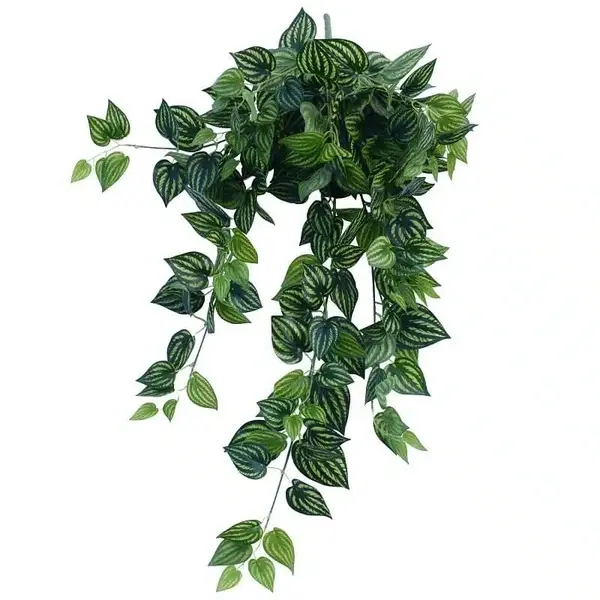Transforming your home or garden with lush greenery is a dream for many, but what if space is tight? That’s where hanging plants inside and outside come to the rescue.
People love artificial hanging plants in urban apartments, cozy homes, or even expansive gardens that need a touch of whimsy. Whether you’re looking to bring life to small spaces or elevate your design game, hanging plants provide an effortless way to do both.
 For those craving greenery but feeling limited by floor or counter space, the struggle is real. How do you bring in plants without making your space look cluttered or sacrificing precious surfaces? This guide is here to make life easier.
For those craving greenery but feeling limited by floor or counter space, the struggle is real. How do you bring in plants without making your space look cluttered or sacrificing precious surfaces? This guide is here to make life easier.
From how to hang plants inside to choosing the right greenery for your environment, and even tips on care and maintenance. You’ll learn everything you need to style your home like a pro. Let’s dive into the world of hanging plants inside the house, where function meets fabulous design.
How to Hang Plants: Step-by-Step
When it comes to ways to hang plants inside, it’s simpler than you might think. Follow this step-by-step guide for a secure and stylish setup.
Choose Which Plant You’d Like to Hang

Get Your Screws Sorted

Drill Your Hole

Screw Your Hook In
Once your pilot hole is ready, it’s time to install the hook that will hold your plant. Take your hook and twist it into the hole, turning it slowly but firmly until it sits flush against the surface. You want the hook to be snug and secure without wobbling.
After the hook is in place, give it a gentle tug to test its strength. Don’t be afraid to apply a little pressure. It’s better to discover any weaknesses now rather than later when your plant is already hanging. If the hook shifts or feels loose, double-check the hole size or consider using a wall anchor for extra reinforcement, especially if your plant is heavier.
Hang Your Plant!

Take a moment to inspect how it looks from different angles. Does it balance well with the rest of your decor? Is it positioned to get enough light? Remember, most hanging plants inside thrive in bright, indirect sunlight, so find the sweet spot where your plant gets the light it needs without harsh exposure. Once everything is set, step back and admire your creation!
Types of Hanging Plants for Indoors
Finding the right hanging plants for inside your home can be as exciting as styling them. Let’s explore some popular options.
Ferns

Spider Plants
Spider plants are among the most adaptable and forgiving inside hanging plants. Their arching leaves and little offshoots (spiderettes) make them a favourite for beginners. Place them in moderate light and water occasionally—they’ll reward you with air-purifying superpowers.
Ivy

Philodendron

Care and Maintenance Tips for Hanging Plants Inside
To keep your hanging plants inside ideas thriving, you’ll need to focus on care and maintenance. Let’s break it down.
Watering can be tricky with hanging plants. Too much water can cause root rot, while too little can leave them dry and stressed. A foolproof method is to check the soil—water only when the top inch feels dry. If your plant is hard to reach, consider a watering can with a long spout or invest in self-watering pots.

Pruning keeps your plants looking fresh and promotes new growth. Snip away dead or yellowing leaves regularly, and trim back any overgrown vines. For pest control, watch out for common intruders like spider mites or aphids. Neem oil or insecticidal soap works wonders for these pests.
Don’t forget seasonal adjustments! In winter, the dry indoor air can be tough on plants, so increase humidity with a small humidifier or by misting. In summer, monitor for heat stress and water more frequently if needed.
Common Mistakes to Avoid with Hanging Plants
Even with the best intentions, mistakes happen. So what should you avoid doing to inside hanging plants?
First on the list of these common mistakes is overwatering. Overwatering is a classic error. Plants don’t need to be soaked every day. In fact, soggy soil can cause more harm than good. Pay attention to moisture levels and let the soil dry out between waterings.
Now, placement matters too. Hanging plants in direct sunlight can scorch their leaves, while too much shade can hinder their growth. Always match the plant’s lighting needs to its placement.
Choosing the wrong plant for your space is another common issue. Not all plants are suitable for indoor conditions, so research before you buy. For low-maintenance options, check our artificial hanging garlands collection. They offer the beauty of real plants without the fuss.
Conclusion
Adding hanging plants inside your home is an easy way to transform your space into a lush, green oasis. With the right plants, proper care, and a little creativity, you can elevate your decor and enjoy the many benefits of greenery.
If you’re worried about the maintenance or have a challenging space, explore alternatives like artificial vertical plants or consider hanging artificial plants from the ceiling for a worry-free solution. Ready to start your journey? Check out the amazing options available at Designer Plants. Your green transformation awaits!















